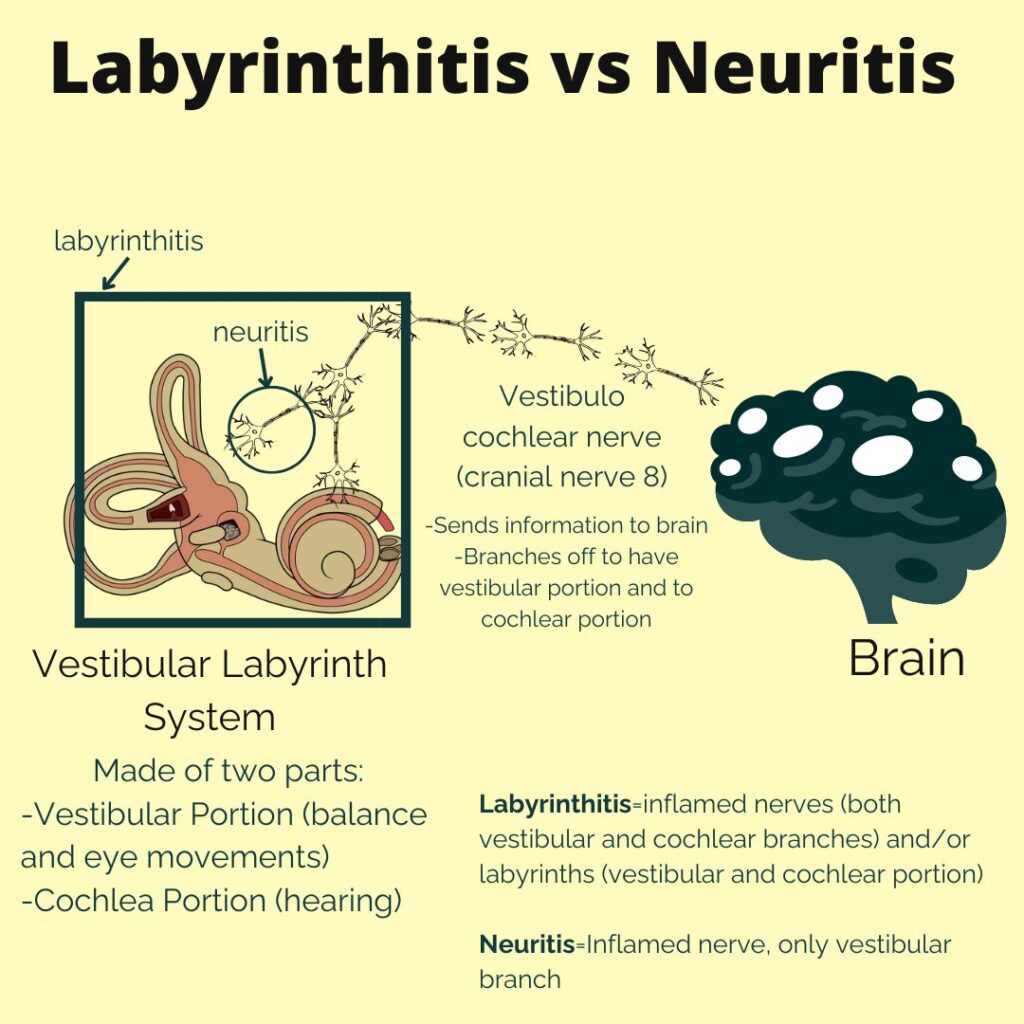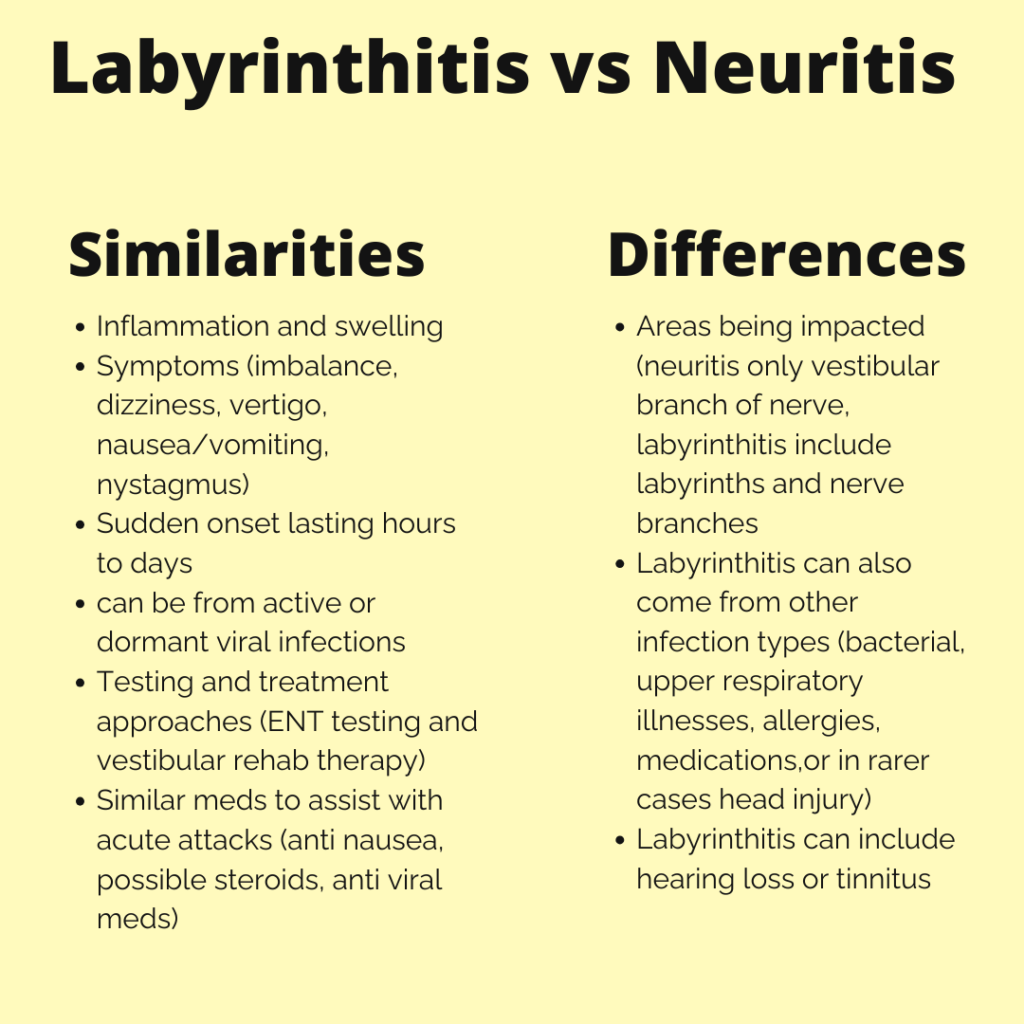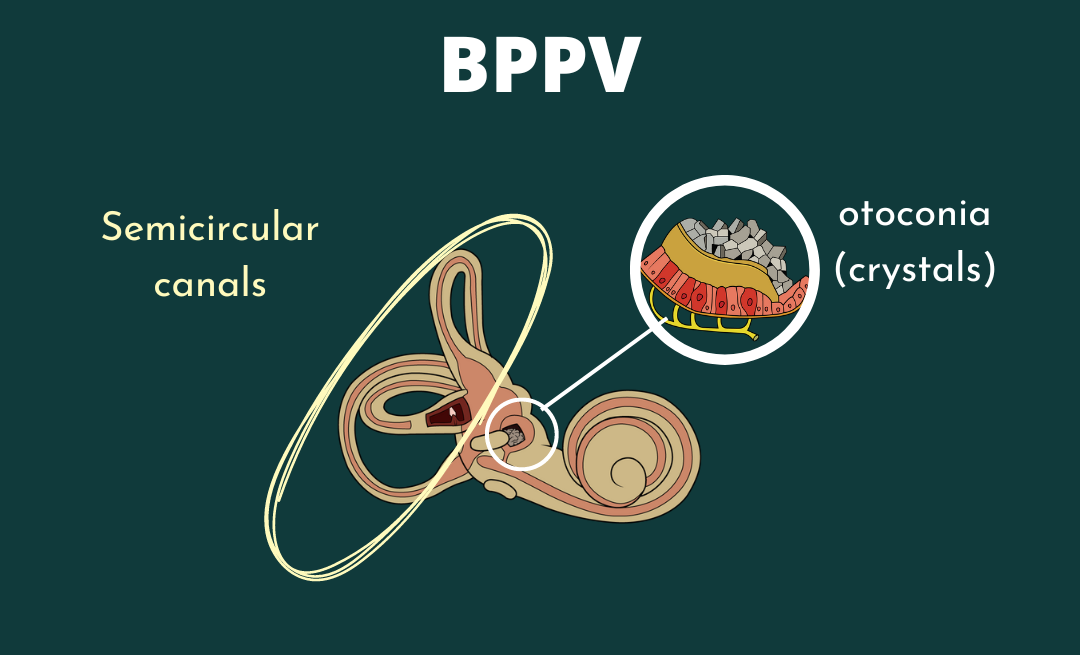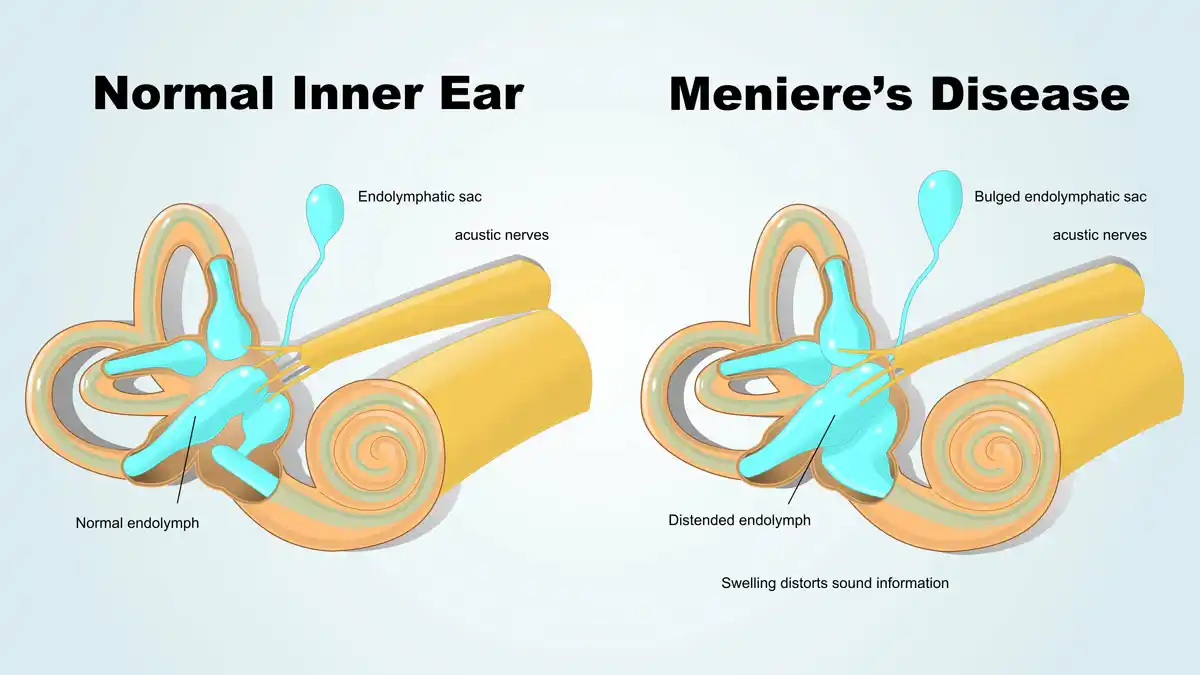Can an ear infection make me dizzy? What is a vestibular neuritis and labyrinthitis? How are they different? In this article, we’ll delve into these conditions, explore whether an ear infection can cause them, and discuss potential treatments to help you find relief.
Both of these conditions can result in a unilateral vestibular hypofunction. Other conditions can also result in a unilateral vestibular hypofunction. This is why vestibular rehabilitation could look similar but the cause of the hypofunction may sound different between people.
The Vestibular System: Your Body’s Balance Center
Before we dive into labyrinthitis and neuritis, let’s first understand the vestibular system. This intricate network of structures within the inner ear is responsible for maintaining balance, spatial orientation, and coordinating eye movements. It consists of the semicircular canals, the utricle, and the saccule, all which have their own special role in signaling and detecting motion and gravity. Check out this blog post for further detail on vestibular anatomy in writing, or this youtube video for audio/visual presentation of vestibular anatomy.
Labyrinthitis: A Disorienting Disturbance
Labyrinthitis occurs when the labyrinth becomes inflamed. This inflammation disrupts the transmission of sensory information from the inner ear to the brain, leading to symptoms such as vertigo, nausea, vomiting, and difficulty focusing. This type of inflammation can result in hearing loss.
Vestibular Neuritis: A Nerve-Wracking Experience
Vestibular neuritis specifically refers to inflammation or infection of the vestibular nerve, often resulting from a viral infection. It typically presents with sudden, severe vertigo that can last for days to weeks, accompanied by nausea and imbalance. While the exact cause of vestibular neuritis is not always clear, it’s often associated with viral infections such as the herpes simplex virus or the varicella-zoster virus. This type of inflammation or infection does not typically result in hearing loss.
Can an Ear Infection Cause Vestibular Disorders?
Yes, an ear infection could be a preceding event to a labyrinthitis or neuritis. The inflammation or infection itself could impact the nerve (as in the case of vestibular neuritis) or the labyrinth (in case of labyrinthitis), disrupting their normal function and causing symptoms of vertigo and imbalance. The image below outlines what structures are impacted in both labyrinthitis and neuritis to further understand the differences of these conditions.

Below is a written out comparison of the similarities and differences of vestibular neuritis and labyrinthitis.

Treatments for Vestibular Disorders
If you’re experiencing symptoms of labyrinthitis or neuritis, it’s essential to seek medical attention for an accurate diagnosis and appropriate treatment. The sooner proper treatment are implemented the better. While these conditions can be distressing, there are several strategies to manage symptoms and promote recovery:
- Vestibular Rehabilitation: This specialized form of physical therapy focuses on exercises and maneuvers to improve balance, reduce dizziness, and enhance your ability to compensate for vestibular dysfunction.
- Pacing, Rest and Hydration: Adequate rest and hydration are crucial for supporting your body’s healing process and managing symptoms.
- Medications: Your doctor may prescribe medications such as vestibular suppressants or anti-nausea drugs to alleviate vertigo and nausea. This can be helpful for short term relief. While this is a tool that is encouraged to help manage symptoms, working towards adaptation and habituation through VRT is recommended for long term improvement. While medications are helpful, they can slow the adaptation and habituation process.
- Modify Challenging Activities or Environments: Minimize exposure to triggers that exacerbate your symptoms, or modify to dampen their impact. This is helpful in the present moment as a short term solution while working towards overall long term progress to these challenges.
- Address Underlying Conditions: If an underlying infection is causing your vestibular disorder, your doctor may prescribe steroids, antibiotics or antiviral medications
Conclusion: Navigating Towards Relief
Living with labyrinthitis or neuritis can feel like navigating through a dizzying maze, but with the right guidance and treatment, relief is within reach. By understanding the vestibular system, recognizing the symptoms of these disorders, and seeking appropriate medical care, you can take steps towards regaining your balance and reclaiming your life. Remember, you’re not alone on this journey, and there are resources and support available to help you every step of the way.
Want to learn more about dizziness and other vestibular tools from the experts and be a part of a supportive community to get back to your daily life? Find out more at this link here.
Disclaimer:
Remember: this post is for informational purposes only and may not be the best fit for you and your personal situation. It shall not be construed as medical advice. The information and education provided here is not intended or implied to supplement or replace professional medical treatment, advice, and/or diagnosis. Always check with your own physician or medical professional before trying or implementing any information read here.






